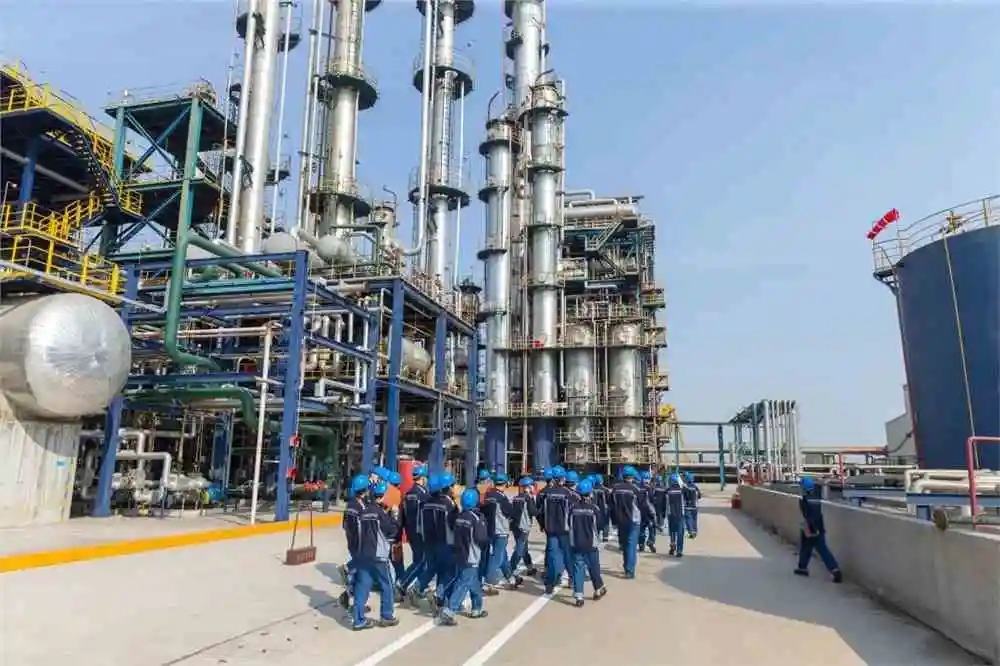Chlorine Tablets Manufacturing Plant: Production and Quality Control
# Chlorine Tablets Manufacturing Plant: Production and Quality Control
Chlorine tablets are widely used for water purification, sanitation, and disinfection purposes. A chlorine tablets factory plays a crucial role in ensuring the production of high-quality tablets that meet industry standards. This article delves into the production process and the importance of quality control in a chlorine tablets manufacturing plant.
## The Production Process
The production of chlorine tablets involves several key steps to ensure the final product is effective and safe for use. Here’s an overview of the typical manufacturing process:
### 1. Raw Material Selection
The first step in the production process is the selection of high-quality raw materials. The primary ingredient is calcium hypochlorite, which is known for its strong disinfectant properties. Other additives may be included to enhance stability and effectiveness.
### 2. Mixing and Granulation
Once the raw materials are selected, they are mixed thoroughly to ensure a uniform composition. The mixture is then granulated to form small, consistent particles. This step is critical for achieving the desired tablet density and dissolution rate.
### 3. Compression
The granulated mixture is fed into a tablet press, where it is compressed into the final tablet form. The compression process must be carefully controlled to ensure each tablet has the correct weight, size, and hardness.
### 4. Drying and Cooling
After compression, the tablets are dried to remove any residual moisture. This step is essential for maintaining the stability and shelf life of the tablets. The tablets are then cooled to room temperature before packaging.
### 5. Packaging
The final step in the production process is packaging. The tablets are typically packaged in airtight containers to protect them from moisture and contamination. Proper labeling is also crucial to provide users with essential information about the product.
## Quality Control in Chlorine Tablets Manufacturing
Quality control is a vital aspect of the manufacturing process in a chlorine tablets factory. It ensures that the final product meets the required standards for safety and effectiveness. Here are some key quality control measures:
### 1. Raw Material Testing
Before production begins, all raw materials are tested for purity and quality. This step ensures that only the best materials are used in the manufacturing process.
### 2. In-Process Testing
Throughout the production process, samples are taken and tested to ensure consistency and quality. This includes checking the granulation, compression, and drying stages.
### 3. Final Product Testing
Once the tablets are produced, they undergo rigorous testing to verify their effectiveness and safety. This includes tests for chlorine content, dissolution rate, and stability.
### 4. Packaging Inspection
The packaging process is also subject to quality control measures. Inspections are conducted to ensure that the tablets are properly sealed and labeled, and that the packaging is free from defects.
### 5. Compliance with Standards
A reputable chlorine tablets factory adheres to industry standards and regulations. This includes compliance with local and international guidelines for water treatment and disinfection products.
## Conclusion
The production of chlorine tablets in a manufacturing plant involves a detailed and controlled process to ensure the highest quality product. From raw material selection to final packaging, each step is crucial for producing effective and safe tablets. Quality control measures are integral to the process, ensuring that the tablets meet the necessary standards for use in water purification and disinfection. By maintaining strict quality control, a chlorine tablets factory can provide reliable products that contribute to public health and safety.
Keyword: Chlorine tablets factory

